 DigitalAudio @sopuli.xyz
DigitalAudio @sopuli.xyz Professional audio engineer, specialized in DSP and audio programming. I love digital synths and European renaissance music. I also speak several languages, hit me up if you're into any of that!
That it's pretty miserable. But it's really good.
Oh no, it's in Marooner's Bay
That doesn't mean we need to discuss it everywhere, all the time. For starters, not everyone is American and wants to see American centric discussions everywhere, and also, not all discussions everywhere need to start revolving around modern politics. Creating apolitical spaces doesn't mean being an apolitical individual. Just wanting to look for more peaceful alternatives.
I'm perfectly fine with being called worthless if you can't see the logic behind that, I legitimately don't give a shit as long as I can get a break from the insane and miserable shit throwing that is online political discourse.
If you like feeling miserable and angry every time you go online, great for you, but I'd much rather have an option not to do that.
Exactly. Just discuss anything else. Whatever. I don't care anymore. I don't want to know. I have absolutely no control over whatever happens in most countries, and I only have control over my own votes (if anything). Online discussion and politics always gets insanely toxic and dogmatic.
I'm not even American and I usually don't care either way, but it's so annoying. Why can't we just have apolitical or at least more focused communities online anymore? I would literally join any community that outright banned all political speech for a change nowadays.
Hell, I'm from a South American country and even I heard it!
No, I don't think you understand what instantaneous actually means. It literally means instantaneous. Faster than the speed of light (which is actually why teleportation is physically impossible but that's irrelevant).
Wouldn't that mostly depend on how long teleportation takes? But if it's instantaneous, you wouldn't need to account for inertia to end up literally a couple of feet away from where you are, right?
Then again, music streaming services pretty much removed music piracy from mainstream usage altogether. Obviously people in this sub still pirate music, but it's so uncommon nowadays, I'm sure many people wouldn't even know where or how to find it.
0.5% for Weezer, at over 1200 minutes.
いいと思います。全部理解できて、ちゃんと書いていると思います!ここは完璧な文法で書くスレッドではなく、逆にミスを多く書いて、他の文章を読みながら、学ぶスレッドになって欲しいです。私もミスをしても大丈夫だと思います!
よろしく!
Makes sense. If you really want to fight religion with regulation, ban mosques and churches, ban public religious speeches. It still won't work, but at least it's consequent with your logic.
But banning hijabs and stuff is probably not going to help anyone.
日本語の週刊練習スレッドしようか
こんにちは皆さん! 久しぶりですね。このコミュニティが結構静かで少し復活しようと思っていました。
それに従って、これから(できる限り)日本語の週刊練習スレッドを始めます。
何でも書いても大丈夫ですから、ごゆっくり自由に日本語を使って、チャットしたり、自分にノートを残したり、なにか最近勉強した文法を練習したりしてくださいね!
Hello everyone! It's been a long time. This community has been pretty quiet for a while, so I've been thinking about reviving it.
Therefore, I've decided to start a weekly (as much as possible) Japanese language thread.
You can write anything, so use Japanese as you please, chat with others, leave notes for yourself, or even practice any recent grammar you've learnt.
よく考えると、なんかこのポストを書くのも自分にとって練習になって草
I think gold might be just a little too low, but I think 110 for Silver and 85 for Bronze are fine.
Damn, it's wild to think that Bonney is so young. But yeah, that makes sense.
On the one hand you're right, but on the other I feel like a lot of stuff has become browser based (like text editors, code editors, even music editors and perhaps video editors someday), all thanks to Web Assembly and how complex a lot of web apps have become.
It feels like people use everyday stuff through apps, and more complex stuff through browsers nowadays. Roles may slowly invert at some point if it keeps going this way.
Ah yeah, I go to concerts pretty often. Radiohead, Green Day, Gorillaz, plenty of local rock, jazz and hip hop bands. But I don't really count that as "partying" as I usually go for the music first.
No, I get you. I'm sure that's fun. I mean, I have awesome fun when I go to concerts I like, like Green Day or Gorillaz (yeah, I like old music lol).
But if you don't do drugs, and you don't even enjoy electronic music all that much, I don't really see much point to raves, clubs and that stuff. Especially if most of your friends aren't into that stuff either.
I'm 25, so nah, not really. I enjoy spending time with my friends, but more like, going to get coffee or playing tabletop games. Maybe playing online games and cursing each other out.
But I can't remember the last time I went to a bar or a club. I was probably in college. I don't find much interesting to do when I go to places like that, so I just leave work early and go hang out at my friend's place with a couple beers, or something. We rarely go out to clubs at all anymore.
Colombia. Solidly placed among the worst countries in the world in terms of work-life balance.
I have a decent job and I don't work that much, but I'm basically a freelancer, so that's already pretty different.
Understanding manzai and the ボケとツッコミ dynamic is key for Japanese
Called manzai in Japanese, this is the local variation on the ever-popular Straight Man and Wise Guy duo, but with the interactions of the duo making a significant part of the routine. The tsukkomi is the Straight Man of the pair, roughly, while …
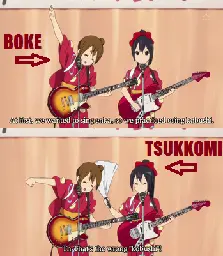
One trope you’ll see repeated all over anime, manga, novels and even in real life is that of the ボケ (the idiot) and ツッコミ (straight man). Once you know a bit more about its dynamics and some of the more famous 芸人 duos, you start seeing it everywhere.
Downtown is one of the more famous ones, but if you want a shortlist of some of the most famous and relevant duos, the M-1 Grand Prix as well as the contestants of the Documental streaming series are great places to get into Manzai.
Manzai is certainly one of the most relevant media in Japanese, and it is so important you start to see language trends as well as cultural shifts reflected in manzai performances. At the same time you also get to see manzai actively shape Japanese culture and set new trends. It’s a great step if you want your Japanese to improve considerably and get closer to real Japanese humour.
Is 「はぁ?」a universal word? - A study on "huh?"
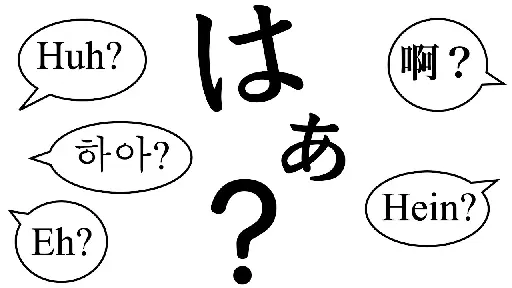
YouTube Video
Click to view this content.
I thought this was a very interesting vieo about the use of "huh?" or 「はぁ?」 and how many languages around the world have found a quick way to let the other party know that there has been a problem in communication.
The Japanese level is rather advanced but I encourage intermediate learners to give it a try and see if you manage to pick up a good chunk of the vocabulary you didn't know from context as well.
Best dictionaries and Japanese-related APKs for Android?
I just switched to Android after being a very long time iOS user and I'm somewhat at a loss at the best apps and must-haves of Japanese content, dictionaries and similar stuff.
What are your best recommendations?
My commuting partner and setup for the past couple of years

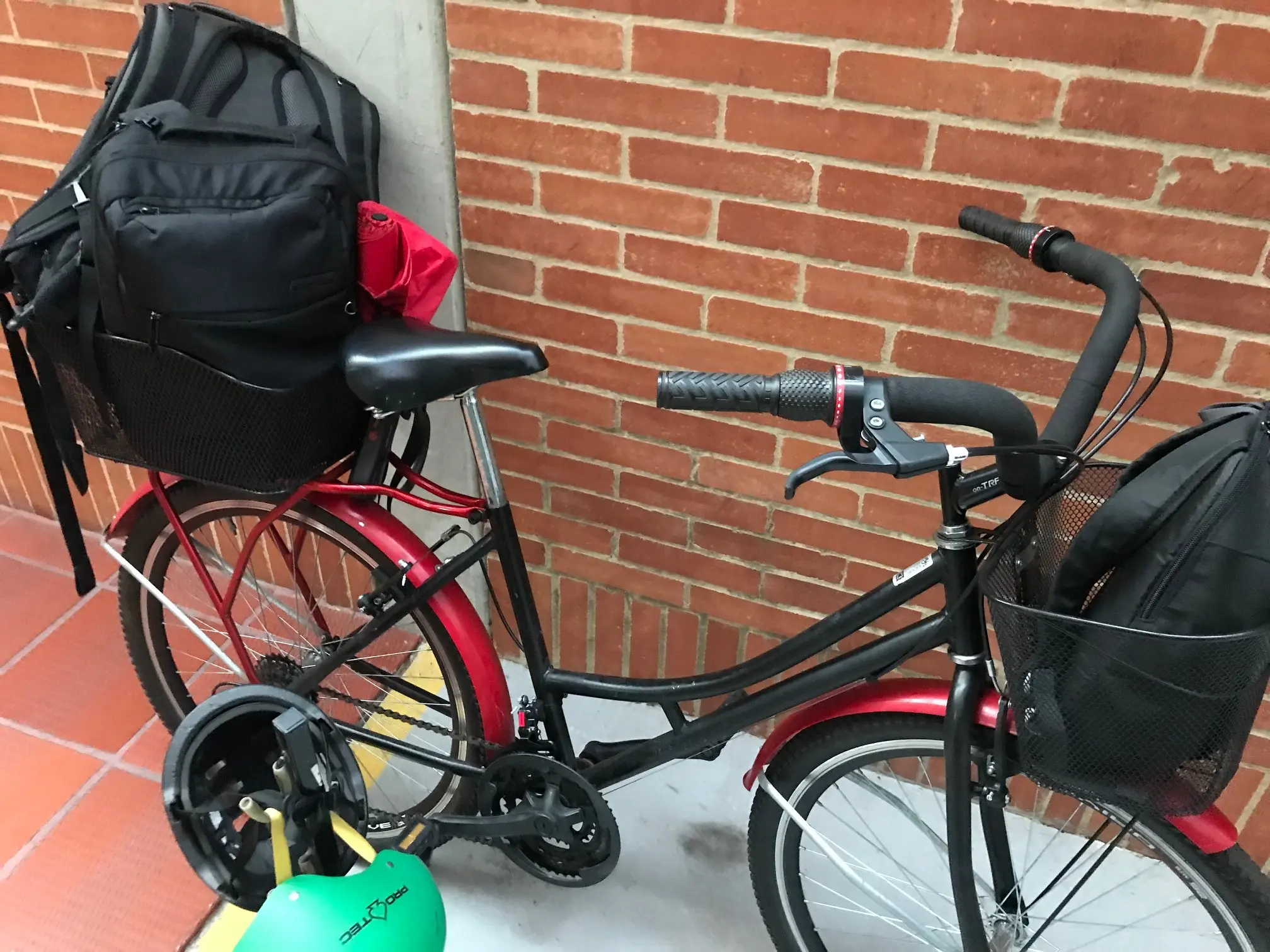
I started commuting by bicycle a couple years ago, which at first I thought would be a major challenge, since I was so used to commuting by bus every day.
A few things I definitely realised I needed during my first couple years were:
-
Two baskets. The one on the front for personal stuff like my jacket, a small bag with my phone, wallet and so on. The one on the back for work-related stuff. That’s where I carry most of my cables, mic stands (if they fit), audio interfaces and stuff. I’m an audio engineer, so I need to carry a lot of stuff for work most of the time.
-
A helmet. I know a lot of commuters don’t use helmets because they’re annoying and they can be difficult to carry around, but I personally realised that most of the time I preferred feeling like I wasn’t a fall away from death. Especially since I’m usually cruising around 20-30km/h. It felt right for me.
-
A rainsuit. Eventually I bought the entire kit. Waterproof pants, jacket and even a waterproof spray for my glasses. I manage to fit them tightly packed inside one of the bags on the back and I don’t even notice they’re there most of the time. They’ve become must-haves for me.
-
Cash. I usually never carried cash around, but after I got a flat tire on my way to work, and the guy at the bike repair stop only received cash, I started carrying cash around pretty much everywhere. At least enough cash to afford a quick repair if anything goes wrong. I also carry a small set of keys and screwdrivers just in case, but I’d rather not mess with the tires myself if I can get someone else to do it for me.
Ultimately, what I’ve discovered about bike commuting, is that it’s a completely different experience from road biking. Obviously this sounds logical to experienced riders, but having never used a bicycle for practical purposes before (and only used it for fun), I legitimately thought it was going to be far more difficult to have a normal life commuting exclusively by bike. You don’t really have to be super knowledgeable about bicycles, or in very good shape, and you don’t have to be extremely passionate about cycling as a sport or an activity to be able to enjoy the massive advantages of bicycle commuting. Mostly, knowing exactly how long every trip is going to take, getting some light-to-medium exercise every day, and getting to work in a much better mood.
Calligraphy 書道 - Different ways of writing 様

YouTube Video
Click to view this content.
This channel is pretty fun whenever I need something to watch and relax without thinking much about it. It has also helped me realise I make a lot of mistakes when writing by hand which inevitably leads to messier characters. Definitely recommend watching if you’re into this type of stuff.
Why doesn’t Japanese just get rid of Kanji?
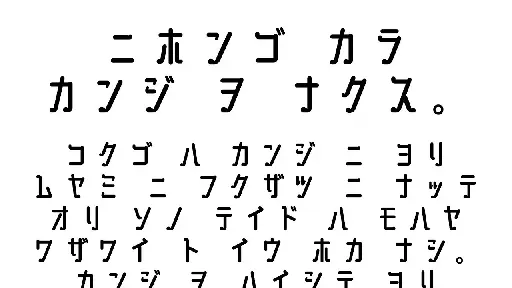
YouTube Video
Click to view this content.
This video by Kotorabo, one of the best YouTube channels about language and etymologies talks about the question we’ve all wondered at some point: why doesn’t Japanese just get rid of Kanji?
JLPT July 2023 - Megathread
Alright everyone! JLPT is tomorrow. Discuss anything related to the test, success or failure stories, fun anecdotes and everything in-between in this thread!
Good luck to all of you taking JLPT within the following hours!
Lamp - 冷ややかな情景 (Hiyayaka na Jokei)

YouTube Video
Click to view this content.
In my opinion, one of the best tracks of the past couple of decades.
Moccobond - Mellow

YouTube Video
Click to view this content.
This is one of my all time favourite tracks. It's just brilliant.
If you like video games, Japanese let's plays may be a good opportunity to practice lots of vocabulary

YouTube Video
Click to view this content.
I've found that any time I'm interested in a game, looking up let's plays in Japanese has helped me make a lot of connections between the game's contents and Japanese vocabulary.
I'm linking a good example of that with Metroid Dread, which is a game I played last year and I spend a few weeks watching let's plays and reading online content about it in Japanese, mostly because I loved the game, but I also thought that doing so might be a good exercise for intermediate learners as well.
The key to searching for a let's play is to just enter the Japanese name of the game (for example: バイオハザード4 or ダークソウル3)and then adding 実況 which is the keyword here. Any popular game followed by 実況 is likely to yield tons of results, so give it a try if you're into games, and you may learn a lot of vocabulary from it!
The road to JLPT #5 - 本日の文法
Hello everyone, and welcome to our (kind of) daily JLPT thread! I'm sorry I couldn't post one of these for the past week. I was busy with work and couldn't get the time to prepare an entire review of a new structure. I'm back and hopefully will be posting these more regularly again. With that said, let's get started!
本日の文法:JLPTN3の「~(という)わけではない」
~わけではない Is a pretty common expression that you're going to find in a lot of media such as anime, manga, manzai and dramas. It's also used in everyday conversation, though, so you will get a lot of mileage out of this one.
For the most part, its meaning is close to "it's not like..." or "...doesn't mean that...", so basically, it's an expression for a partial negation of a statement. You'd use it when you don't want to fully deny something, but still want to point out that something isn't quite correct.
So a few example sentences would be
お金があるから、必ず幸せにるというわけではない。"Having money doesn't necessarily mean you will be happy."
成績が良かったから、他の生徒に教えるのが得意なわけではない。"Having good grades doesn't mean you will be good at teaching other students"
So right now there are a few additional things you may be wondering:
First of all, what is という in this instance, and why is it optional? Is it really always optional or does it have a more nuanced use most of the time?
Generally speaking, where you can use a simple わけではない, you can also use a というわけではない. They're grammatically equivalent in that sense. However, they do have a very slightly different meaning, where という gives the impression that you're taking a less opinionated and more objective approach to the conversation. You would use というわけではない when you perhaps want to make a general statement. Looking at our first example sentence, you will notice that we're talking about a general perspective "money doesn't mean happiness in general", and as such, it doesn't feel like you're talking about anyone in particular, and you're just making a statement. But for our second sentence, you may notice the situation is most likely referring to a successful student that has decided to teach the rest of his class, and is probably not great at it. In this case, leaving out という makes the comment slightly harsher, almost like a criticism to a specific person in question.
So do keep those differences in mind.
Also, it's important to point out that わけではない is a rather stiff way to use this expression, and you may want to use わけではありません in formal contexts, or わけじゃない in more casual contexts. わけではない sounds a bit academic, kind of like the one speaking is a figure of authority. The type of speech you would find in textbooks, newspapers, academic research and similar scenarios.
Some examples for different settings would be
この道まっすぐ行ったら、すぐに図書館に到着するというわけではありません。その前、公園も渡らなければなりません。"You will not reach the library immediately if you walk straight down this road. You have to cross the park first as well."
いや、別に俺の妹が天才なわけじゃないけど、結構頭がいいし、頑張れる人間だから。"Nah, it's not like my sister is a genius or anything, but she's pretty smart, and she works hard."
The first example could be someone giving directions to another person, presumably a complete stranger. In this scenario, using full-on 敬語 would probably be overkill, but using a more informal form would come off as rude. This is why a polite form like this one might work.
The second example is far more informal, but you will also encounter a lot of this in every day life. I've personally found myself speaking to many of my co-workers like this in the office. Definitely not to my boss or other superiors, though, so watch out for that.
I think that will be all for today! Hope everyone is having a nice day, getting ready for JLPT in only 12 days!
My usual commute to work as an audio engineer, including audio interface, cables, laptop, water bottle and tools

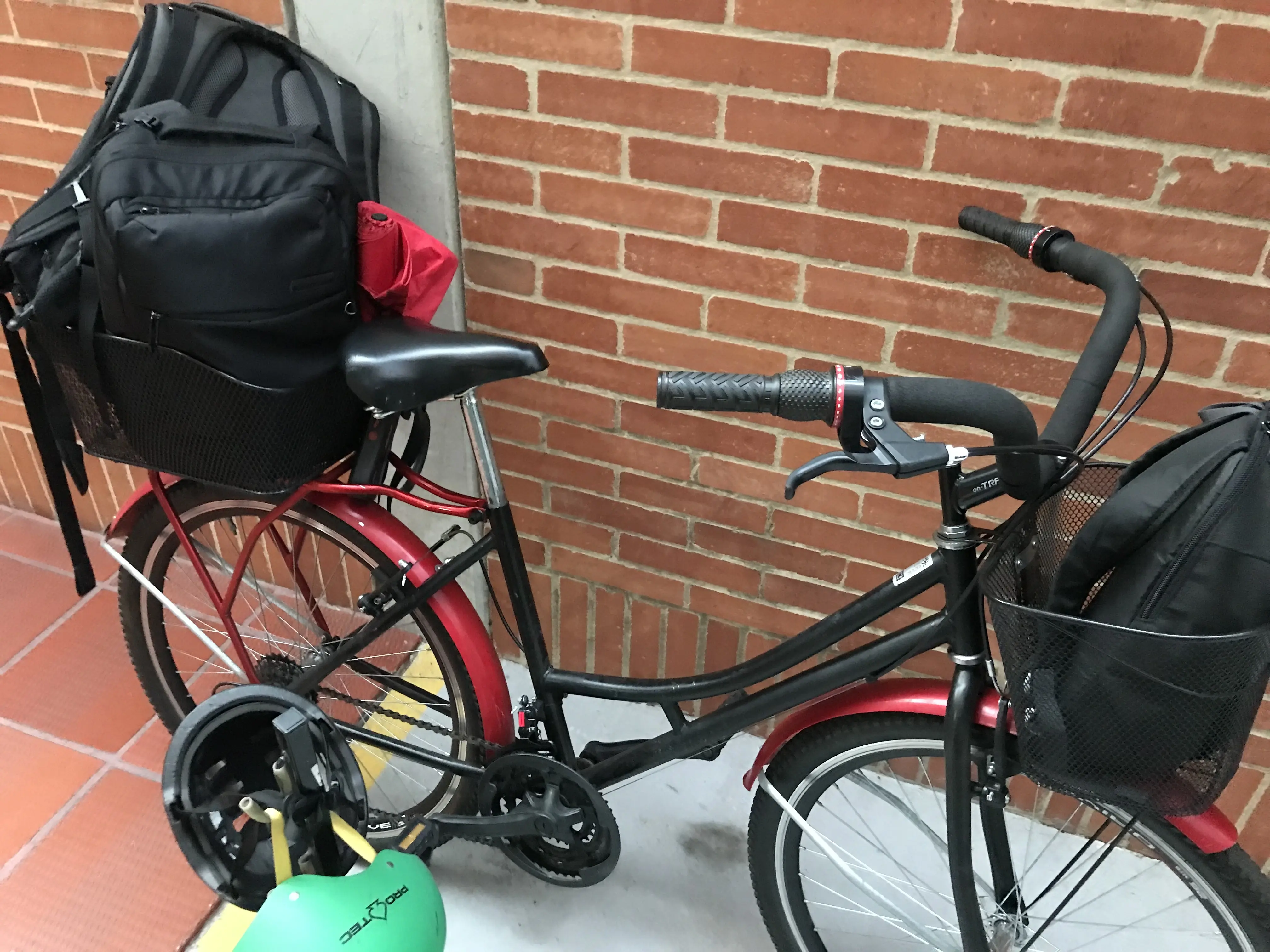
I sort of created a system where the tiny bag in the front will contain my personal stuff like phone charger, water bottle, wallet, earphones, etc.
The first bag in the back contains the tech stuff like laptop, audio interface, and microphones (if any), and the larger bag contains the heavy lifting stuff like the cables, smaller table mic stands I can fit inside it, duct tape, scissors, AC/DC adapters and so on.
Last time I did 20km each way on it, and although I got home pretty tired, it also felt super rewarding as well.
If you want to challenge yourself to a very fun podcast: ゆる言語学ラジオ - 単語はすごい

YouTube Video
Click to view this content.
I love this podcast. They discuss a lot of the more mind-blowing quirks of language from a Japanese perspective. It has led to some truly mind-blowing moments for me, where I have understood English from a completely new perspective, and I really enjoy it.
The catch is that it gets pretty hard at times! But if you want to discuss it here, that could be pretty fun! This episode was particularly interesting.
For some additional context: they're discussing how amazing "vocabulary" is, and they start the podcast joking around a bit before getting into the subject matter. Hope some of our most daring members give it a try!
An introduction to japaneselanguage!
Hello everyone, I realised we don’t really have an introductory or meta thread for this community, and I thought it might be wise to create one.
So first of all, you might be wondering what japaneselanguage’s particular scope is and how it might be different from other Japanese communities in other instances.
Generally, I don’t like to think that we will be competing with other instances, but rather that we will be filling a niche for people that might be interested in discussing the language itself rather than it’s study methods. This community isn’t going to be a place to discuss the speedrunning or the efficiency of learning Japanese as there are other communities dedicated to those subjects.
Instead, this will be a place where we can discuss how the Japanese language works, it’s phonetics, it’s writing system, calligraphy and other related topics, our handwriting, as well as all other sorts of topics.
Learning materials, media, and literary discussion are very much welcome and encouraged! The only subject that will be discouraged (though not downright banned) is discussion of study methods exclusively without also including discussion about the language itself. So threads in the style of “how I learned 1,000 Japanese sentences over a three-week period” and similar threads focusing more on the methods than the language will probably belong in more specific communities.
Thank you very much for browsing this community and I hope we will be able to build a fun space for all of us who love Japanese.
The road to JLPT #4 - 本日の文法
Hello everyone, and welcome to our daily JLPT thread! Let's hope we keep growing as a community. I've seen a lot of growth in this sub, and last thread even got one comment, which is already pretty impressive for such a grassroots place! Let's talk about more Japanese grammar from now on!
本日の文法:JLPTN3の「~によって」
~によって Is a structure that you're going to be seeing quite frequently throughout your Japanese journey. It is used in all sorts of contexts, from the very informal to the academic and highly complex. It has a few different meanings that are mostly unrelated to us, non-natives, so let's take a look at them.
~によって As "depends"
If you've ever wondered how to give some nuance to your speech, によって is a great way to do it. Sentences like "depending on the circumstances" or "that depends on the weather" can be constructed using this structure.
A few example sentences for this could be
明日の天気によって、散歩に行きます。”We'll go for a walk depending on tomorrow's weather.”
どんな家族によって、子供の教育が変わっていきます。”A child's education will change depending on their family”
~によって As "using / by means of"
Another common use of によって, is to indicate the means by which you achieve something. It can be similar to the particle で in some cases, but it might be perceived as a more formal alternative, frequently found in academia and formal writing. Let's look at some examples:
人間は、言語によってコミュニケーションする。"Humans communicate using language."
教科書によって、新しい知識を得ることができる。"You can obtain new knowledge using a textbook."
Do keep in mind this does not replace the verb "to use" and it's not equivalent. If you want to emphasize the usage aspect of that verb, you will need to use the verbs 使う or 使用する, and build a different structure. In these sentences we're using によって because the mentioned nouns (言語 and 教科書 respectively) are a means of achieving something, and that's what's important. So always keep in mind "do I just want to say 'use' as a verb, or do I want to explain how this item helps me accomplish a particular goal?"
~によって As "by (authorship)"
This one is very simple, but still really important. In Japanese, when you want to mention the author of a specific work or text, as well as the person that brought a specific project to completion, you can use によって。Let's look at some examples:
この面白いファンタジーシリーズは有名なイギリス人の作家によって書かれた。"This fun fantasy series was written by a famous English author."
韓国人の漫画家によって描かれた漫画は日本の漫画と違うところがかなりあります。”Manga written by Korean authors is considerably different from Japanese manga."
~によって As "due to / as a consequence of"
Finally, we have another form frequently used in formal speech, particularly in news reports, journalism and similar scenarios. I frequently imagine reporters using this form to explain current or ongoing events. Here are some examples:
東京における今晩のイベントによって、会議が中止されました。"The meeting was canceled due to this evening's event in Tokyo."
25日の地震によって、国中のいくつかの道路が非公開になっております。"Several roads in the country have been closed to the public due to the earthquake on the 25th."
These are the most common uses you'll find for によって, though as always, try not to approach grammar as a 1:1 equivalent for English structures, and instead make sure you pay attention to the different contexts in which you'll see it used, so you can get a better feel of how this structure works.
PD:
Let me know if any of you have a request for future structures or grammar that you think would be fun to discuss in its own thread, and I'll be happy to oblige.
That would be all for today, hope everybody has a very nice day!
The road to JLPT #3 - 本日の文法
Hello everyone, and welcome to our daily JLPT thread! It’s insane seeing the community grow up to 20 users. I want to keep these posts up in hopes of building an active community that focuses on what the Japanese language is, and how it works. It really is a fascinating subject to study!
本日の文法:JLPTN4の「~くらい/ぐらい」
~くらい/ぐらい Is a single word that is most commonly found when talking about approximations or approximate values. Keep in mind that both くらい and ぐらい are the same and 100% interchangeable, so it’s up to personal preference you how say and spell it. This word has a few more uses that may be more idiomatic and make your Japanese sound more natural as well, so let’s look at some examples.
A few example sentences for this could be
明日のテストは30分ぐらいかかります。”Tomorrow’s test will be about 30 minutes long.”
彼女の息子は前回会った時、身長がもう120センチぐらいだったよ!”Last time I saw her son, he was already around 120cm tall!”
Although this form is rather casual, and for more formal speech you would use other forms, it is still extremely common, and you can find it in a lot of places, from media, to casual speech and even advertising. This isn’t even the only casual way to mark approximate values, but I think it might be the best to learn first, as it’s both versatile enough, and quite useful to know.
Now, some uses of ぐらい may be a bit confusing for a student at first. This is because a second common use for the word is as a level indicator. That means, as a word you use to emphasise the degree of things.
Let me show you a few examples
こんな簡単な文章ぐらい、小学生でも読める。”Even a grade schooler could read a text as simple as this”
And for a more complex one, if you want to challenge yourself:
お寿司は世界中の何百万人も食べたことがあるぐらい有名な和食です “Sushi is a Japanese dish so popular that millions of people around the world have tried it”
In both of those sentences くらい is used to indicate the degree of situations. In the first case it indicates just how simple a text is (simple enough for a grade schooler), while in the second case it indicates how famous sushi is (famous enough to have been eaten by millions around the world). I understand this specific use may be a bit more challenging, so feel free to create your own examples to practice and play around with it as you get more comfortable! Remember that writing and speaking are important parts of learning a language as well.
That would be all for today, hope everybody has a very nice day!
The road to JLPT #2 - 本日の文法
Hello everyone, and welcome to our daily JLPT thread! As the tests get nearer and nearer, I'm thinking on focusing on N4-N3 grammar for a few days, since I think those are probably the most popular tests, and the bulk of potential readers will fall under that level most likely. That said, let us begin!
本日の文法:JLPTN3の「~のように・のような」
~のように・のような Is a very common structure that could translate to “just like” or simply “like”, implying resemblance or any commonalities between two things. It's especially common when you want to use someone's attributes or features to link them to someone else.
A few example sentences for this could be
弟は、父のような優しい人ではない。 “My brother is not a gentle person like my dad is”
彼女は、状況をよく理解できる方のように説明しました。 "She explained it like someone who understands the situation very well."
It's not a particularly formal or colloquial form (although it might be more unusual in highly formal speech), but it does change depending on how it's being used.
Notice that the first sentence is linking two nouns 「父」 and 「優しい人」, and thus のような is used. The structure would become NOUNのようなNOUN.
For example: 「師匠のような先生」"A teacher that's more like a mentor" or 「太陽のような光」"A light like the sun".
However, you can also change the structure to のように to make more specific comparisons. We can modify our previous examples to make them evaluate a specific feature or quality about someone or something.
For example: 「師匠のように話する先生」 "A teacher that speaks like a mentor."
「太陽のように明るい光」 "A light as bright as the sun."
Hope everybody has a very nice day!
The road to JLPT #1 - 本日の文法
Hello everyone, and welcome to our daily JLPT thread! The July tests are coming up quickly, so I thought we could have a daily thread where we discuss questions, or talk about what we've been practicing. In this thread I will also be sharing one graded grammatical structure every day, so feel free to use it for your own reference.
本日の文法:JLPTN1の「~極(きわ)まりない」
~きわまりない Is a very interesting structure that could translate to "extremely" or "as can be".
A few example sentences for this could be
図書館で大声を出して騒ぐなんて、迷惑きわまりない。 "Speaking loudly and making a ruckus at a library is as annoying as it gets"
昨日、彼の態度は失礼きわまりない "His attitude yesterday was extremely rude"
This structure could be considered relatively similar in meaning to 「非常に」 though naturally the way it's built is different. In this case you mostly just attach it to a noun. That makes it relatively easy to use! Remember that this is a relatively literary or formal structure, so you probably won't be hearing it too much when speaking casually or colloquially.
Hope everybody has a very nice day studying for your upcoming test!